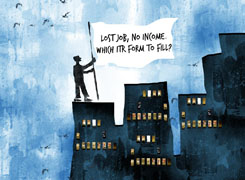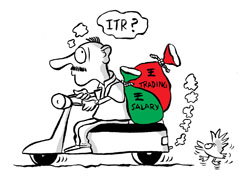Hi, i have completed my masters in food technology and want to work as freelancers as a auditor in food industry could you guide how to go about doing. Currently im working as an HSEQ in compass food services pvt limited and i want to leave because the timings are too hectic and i want to do phd in food and nutrition and simultaneously to do food auditing as a freelancer. Kindly guide me pls.
Ans: Transitioning from a full-time role to freelancing as a food industry auditor can offer flexibility and autonomy in your career. Network with professionals in the food industry, including food manufacturers, suppliers, distributors, and regulatory agencies. Attend industry conferences, seminars, and networking events to connect with potential clients and collaborators. Evaluate your qualifications, experience, and skills in food technology, quality assurance, and auditing. Identify areas where you have expertise and experience that are valuable to potential clients in the food industry. Familiarize yourself with the requirements and standards for food auditing, including regulatory requirements, industry standards (such as ISO 22000 and HACCP), and customer specifications. Understand the auditing process, documentation requirements, and audit protocols. Consider obtaining relevant certifications or training in food safety auditing, such as Certified Food Safety Auditor (CFSA), Lead Auditor Training, or other accredited programs. These credentials can enhance your credibility and qualifications as a freelancer. Determine the specific services you will offer as a food industry auditor, such as food safety audits, quality management system audits, regulatory compliance assessments, or supplier audits. Identify your target market, including food manufacturers, processors, retailers, or food service providers. Develop a professional brand identity for your freelance auditing services, including a business name, logo, website, and marketing materials. Highlight your expertise, qualifications, and unique value proposition to attract potential clients. Determine your pricing structure based on factors such as the complexity of audits, scope of services, and industry standards. Establish clear policies regarding payment terms, project timelines, and confidentiality agreements to protect both your interests and those of your clients. Promote your freelance auditing services through online channels, social media platforms, industry forums, and professional associations. Create content related to food safety, quality assurance, and auditing best practices to showcase your expertise and attract potential clients. Cultivate relationships with potential clients by offering value-added services, such as training, consulting, or ongoing support. Build trust and credibility through transparent communication, professional conduct, and delivering high-quality audit reports and recommendations. Establish systems and processes for managing your freelance business, including client communication, project management, invoicing, and record-keeping. Prioritize time management and organization to balance your freelance work with your Ph.D. studies effectively.
By following these advice and leveraging your expertise and experience in food technology and quality assurance, you can establish yourself as a successful freelance auditor in the food industry while pursuing your Ph.D. in food and nutrition. Keep learning, adapting, and refining your approach to meet the needs of your clients and achieve your professional goals.























